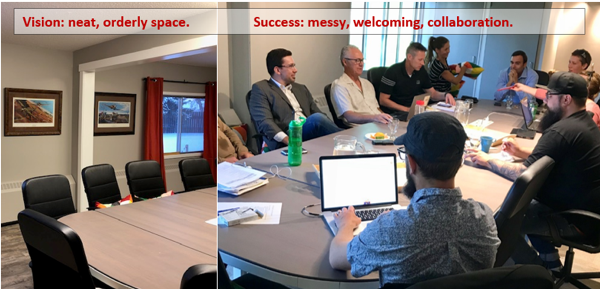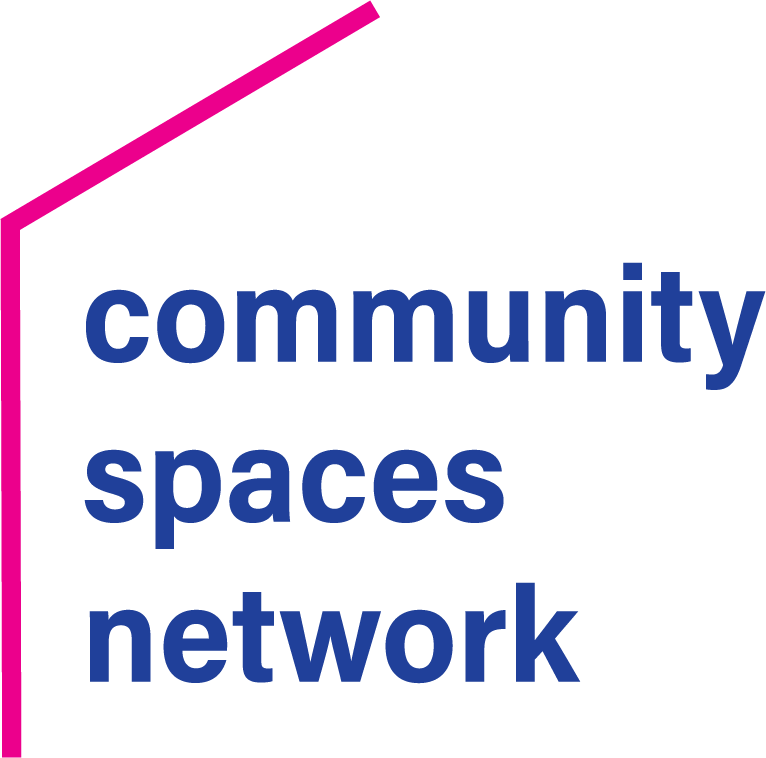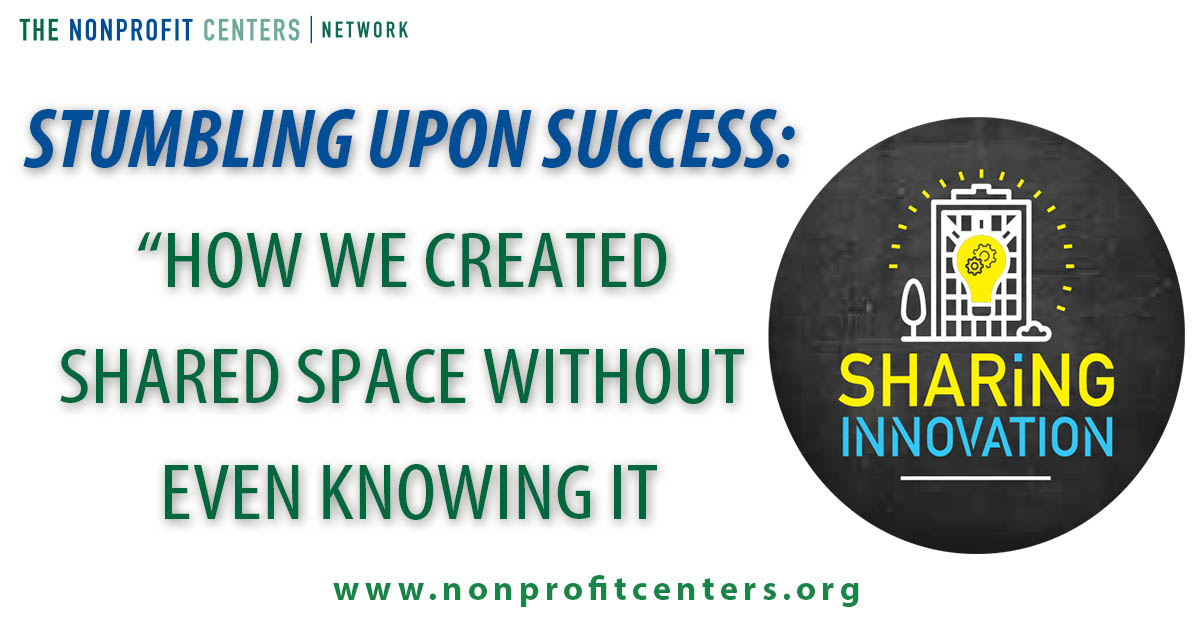We are excited that today’s blog author will be featured as one of 8 presentations at this year’s Sharing Innovation 2019. Like what you read? Register today at www.nonprofitcenters.org/sharing
Colossal failures and some initial successes caused us to stumble into social innovation in a shared space. We didn’t see the journey taking this route, we just needed more space. While we work in a large rural setting, there are very few appropriate rentals to fit our needs.
In October, we will explore how we applied the Panarchy Theory to our journey to success.
Exploration – We started looking for a space just our size but what we found was one three times what we needed. Using our silo lens, we began looking for tenants to help pay the rent and it wasn’t until our largest prospective tenant, with deep pockets, backed out at the last minute. We essentially hit a road block that forced us to completely shift our thinking. Our detour took us into social innovation and changemaking.
Development – We thought that we had planned the perfect journey booking all our rooms in advance when really, we needed to do more research on the route and what we would find at each location. Shifting our perspective meant that we needed to learn. We attended conferences including the 2015 Building Opportunities Conference in Vancouver (complete with boot camp), the Tamarack Institute’s conferences on Vibrant Communities and we enrolled staff in trainings and courses such as MacEwan University’s Social Innovation Certificate program. It was at this junction in the road that we learned that failure can actually be a tool for success.
Growth – We applied our learnings and after early successes with initiatives such as multilevel leases, flexible space, purposeful artwork and signage to celebrate inclusion and daily networking opportunities we began to see where we fit within our own centre and where the centre fit in the larger community. We doubled down on compromise rather than emphasizing policy and procedure to create social cohesion.
Maturity – We were able to celebrate our successes and leverage small partnerships into larger scale innovations, most recently receiving a McConnell Foundation grant, along with other partners in the community, for the creation of a social lab to create systems change in education. Maturity is about not getting stuck in one location, rather looking at what needs to scale up or scale out and recognizing when it’s time to let go and continue the journey.
Release – Moving on, whether by choice or through the choice of others can be emotional and discouraging, like a flat tire or engine trouble. We can choose to sit on the side of the road and have a good cry, then we need to embrace the failure as a tool that puts the air back in our tires. Letting go opens doors to new opportunities, we need to slow down so we can see them.
Organizations moved into our centre because it was economical but they stayed because they have a shared belief in the importance of our centre in the community and they see their ideas in action.
We learned to intentionally create opportunities for input and collaboration, we learned to recognize emergent themes, and we learned (the hard way) to let go and move forward collectively. These learnings all form the foundation of our centre’s success.

